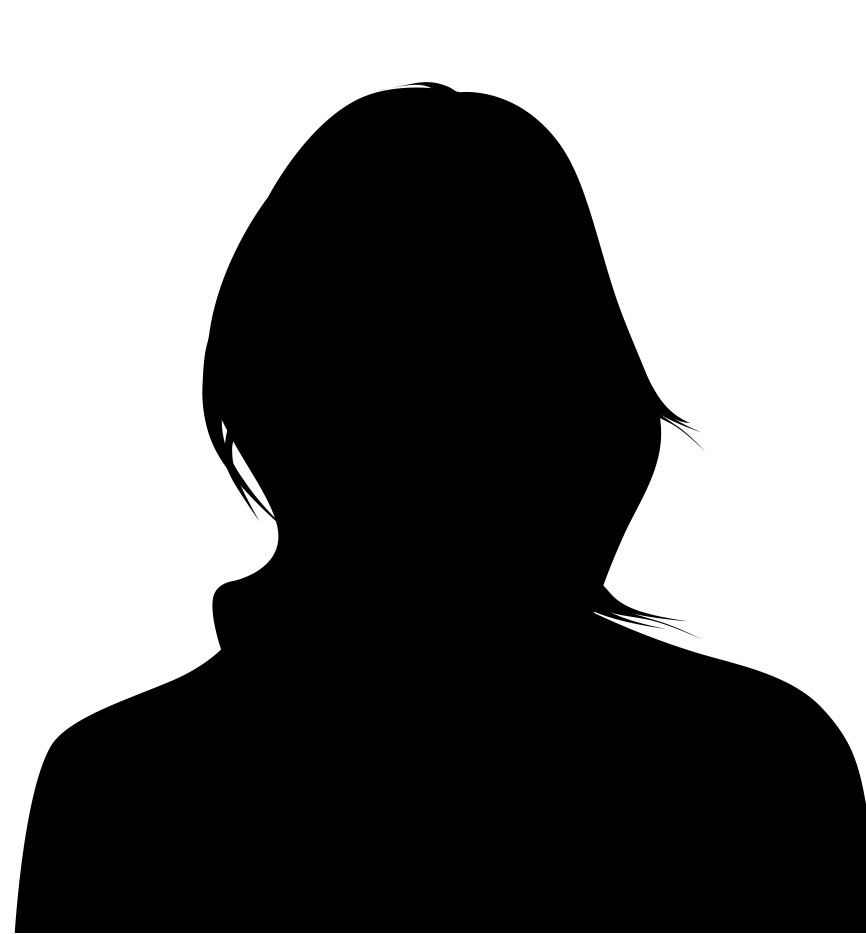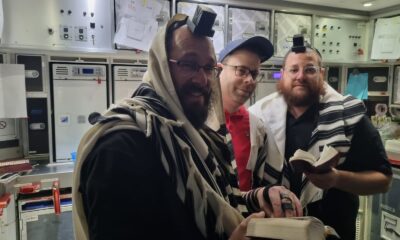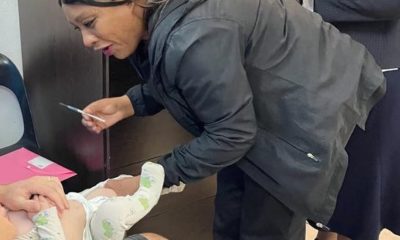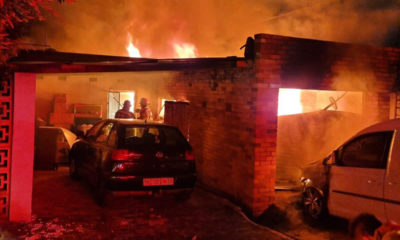
OpEds

The highs and lows of being a Hatzolah Wellness caller
Published
3 years agoon
By
AnonymousIn mid-June, when COVID-19 cases began climbing to unprecedented levels in our community, I was privileged to be asked to become a Hatzolah COVID-19 Wellness caller. I, a university student without a medical qualification, joined a team of at least 80 other more experienced and trained individuals (now numbering 110), many of whom had been caring for COVID-19-positive patients since the beginning of the pandemic.
My responsibility? To call twice daily at least 25 patients infected with COVID-19 who were considered high risk due to their age or comorbidities. I captured their vital statistics and general well-being on an ingenious data system, as well as taking action to assist them if their health deteriorated.
So, what was it like being a Hatzolah Wellness caller during the height of the third wave?
It was like being an amateur swimmer trying to rescue those drowning in the COVID-19 wave on shore while trained lifeguards were consumed with taking care of those stuck in deep, choppy seas.
It was waking up at four in the morning in a start, thinking that I had heard the bone-piercing sound of my Hatzolah phone ringing, just to realise that it was only a dream.
It was having nightmares about talking to patients who were deteriorating, and not acting wisely enough to help them. I had dreams of oversleeping, and missing the time to call my sickly patients. I also had visions of coming into contact with COVID-19, and having to be the one to take care of my deteriorating family at home.
It was telephonic exposure to the virus, making me see it everywhere. Hearing my patients ask, “How did this happen to me? I was so careful, I didn’t go anywhere?” caused me endless fear. I feared for my own parents as they did, indeed, leave the house (only to shop for food). If my overly cautious patients who never went out could contract COVID-19, so could we.
It was hearing all the COVID-19 symptoms and thinking that every time I had a bad night’s sleep, an itchy eye, or heard a single sneeze in the house, it definitely was COVID-19. I would insist that we all test immediately. I was becoming “the COVID-19 police” of the house.
It was doing calls on my favourite day of the week – Shabbat. (We were given halachic exemption to do calls on Shabbat and chaggim.) So even the day of rest was infiltrated with the worry of “should I have alerted my supervisor [who also keeps Shabbat] for this”, and “did I do enough?”
It was hearing about the suffering my patients were going through and sometimes not being able to do more than just listen. I heard about their physical pain, their emotional hardship, their financial trouble, and sometimes, unfortunately, their losses too.
It was having patients who were bubbly and cheery over the phone be admitted to hospital and return home sounding utterly exhausted and no longer in the mood to chat.
It was the knowledge that all healthcare workers and health facilities were swamped, and my job was to take care of patients to relieve the pressure. I bore the weight of knowing that patients who should ideally be hospitalised were my responsibility instead.
It was the worry that every time I asked for help from one of the incredible paramedics or from the admin team at Hatzolah, I was adding to their burden and inconveniencing them.
It was having patients say, “Stop calling me, I’m fine”, and put the phone down on me, when all I wanted to do was help.
But, it was also the small triumphs of a normal temperature after days of fever; when a patient completed days on an oxygen machine; or once a patient had finished isolating and could finally see their grandkids.
It was the feeling of relief when a patient came home from hospital and sounded more energetic and happy.
It was the friendships made over the phone, sharing muffin recipes, learning Hebrew from a patient, and chatting about our shared passion for music.
It was a patient who completed the programme calling me on a Friday weeks later to wish me “good Shabbos”.
It was the kindness I received in a sweet thank you message, warming up my heart and making my day.
It was the knowledge I gained, and the patience I had to learn.
It was hearing a 90-year-old patient with a number of comorbidities have absolutely zero symptoms, and an 100-year-old patient return home from hospital, feeling much better.
It was proudly telling a patient at the end of 14 days that they were doing well, and had “graduated from the programme”.
It was having the privilege of being part of an unbelievable team, whose members were willing to help one another. I’m so grateful to have witnessed their selflessness. There were my fellow callers, who were always there for advice and tips, and the crisis response team, which looked out for the mental well-being of everyone – even my own.
I’m in awe of the incredible nurses who ran into the fire of infectiousness every day from morning until late, as well as the knowledgeable and patient paramedics who the callers could turn to for any medical advice. Then there were the drivers, who probably drove the equivalent of Joburg to Cape Town and back in order to deliver equipment to many patients. Also, I loved the Pop team, which organised hundreds of balloons for recovered kids, bringing light and joy to their precious lives. Then, there was the superhuman admin team, which probably didn’t sleep for six weeks while it held the lives of more than a thousand of our community at the peak of the wave in its caring and capable hands. I’m inspired and in awe of all of them.
It was the opportunity, finally, to be able to help during the pandemic in a way that wouldn’t threaten my family.
I’m so privileged to have had this opportunity. Thank you, Hatzolah!
What you do is unmatched. It was humbling to witness the lengths you go to in order to care for the happiness and well-being of the community. We are blessed to have you.
- This writer asked not to be named to avoid any complications with the work she’s doing.











Dawn de Jongh
Aug 6, 2021 at 7:41 am
Hatzolah and the work done by all in the name of humanity can never be thanked enough! To all of you be blessed!